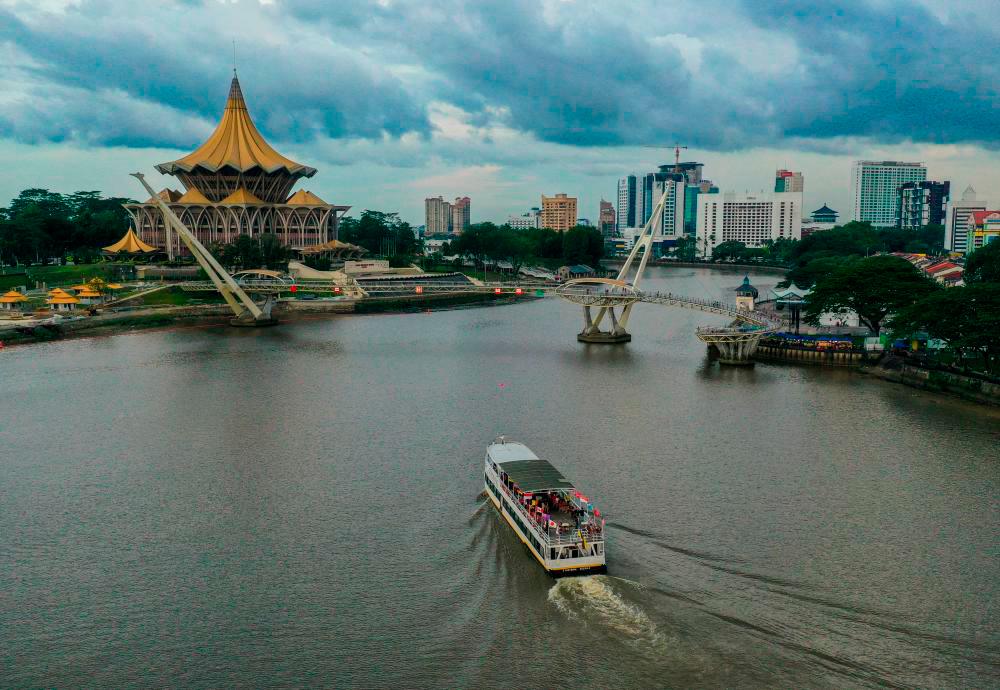KUCHING: When attending the National Gawai Celebration in Sarawak last June, Prime Minister Datuk Seri Anwar Ibrahim was drawn to an Iban phrase “Segulai Sejalai”, which translates to “seiring sejalan” (together in unity).
For him, this phrase encapsulates the strong unity in Sarawak, even though the largest region in Malaysia is home to no less than 40 ethnic groups with their own language, culture and unique way of life.
This led him to adopt the phrase “Segulai Sejalai” as the slogan for unity to be used nationwide.
However, the phrase is not a mere rallying call. It is an accurate representation of unity that Malaysians from other states have experienced while living in the Land of the Hornbills.
This was acknowledged by Rozairi Ismail, 33, who hails from Pahang when he first set foot in this state in 2010 to pursue his Bachelor’s degree at the Universiti Malaysia Sarawak.
The administrative officer said Sarawak is a unique state in terms of its diverse ethnicity and culture, as well as its rich tradition.
“Its people can live together harmoniously. Most importantly, they can sit down and eat together in Chinese restaurants regardless of race and religion.
“It’s no wonder that those who have experienced the Sarawak lifestyle will feel comfortable and fall in love with the harmony in this state. As the saying goes, ‘tak kenal maka tak cinta’,” he told Bernama when met recently.
Echoing similar sentiments was Kedahan Asyraf Halim, 32, a journalist with a local daily who has been living in this state for 12 years. He was impressed with the level of understanding and high tolerance among different ethnic groups in Sarawak.
“The friendliness of Sarawakians also makes me feel at ease and willing to learn more about the local culture here.
“Furthermore, there are fewer conflicts between races and the situation here is much more peaceful. It has captured my heart and made me want to stay longer,” he said.
For Eric Clement Wong, a 30-year-old assistant editor at a local newspaper originally from Sabah, Sarawak is like his second home that has had a significant impact on his career and life.
“Sarawak offers many interesting aspects, not only in terms of its natural beauty and rich culture but also as a place to develop my career and identity.
“The diverse cultural heritage makes me want to explore it more deeply. The community in Sarawak is also friendly and inclusive and the quality of life here plays a role in my decision to continue living in this state,” he said.
Meanwhile, Carldrex Jackson, 35, who moved from Sabah to Sarawak to accompany his wife who works in the state, said he admired the peaceful and safe atmosphere of Sarawak which is not flooded by immigrants.
He said this made him feel safe and comfortable and he was also impressed with the political stability in the state.
World Bank economist Apurva Sanghi previously said that Sarawak is now a high-income state with the gross national income exceeding the high-income threshold.
In fact, Sarawak Premier Tan Sri Abang Johari Tun Openg is also optimistic that the state government’s target to increase the average household income by 2030 can be achieved earlier, given the increasingly positive economic growth in the service sector.
This achievement would not be possible without strong unity among Malaysians in Sarawak.
With the strong spirit of “Segulai Sejalai” in their hearts, this unity will undoubtedly continue to remain the foundation for achieving any desired goals. -Bernama









